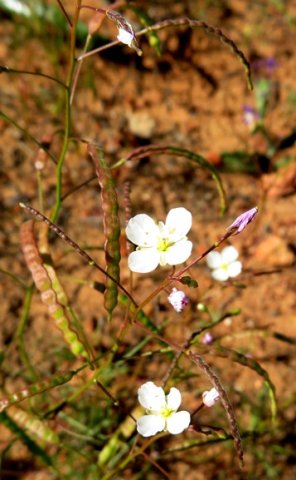Heliophila collina fruit

Author: Ivan Lätti
Photographer: Thabo Maphisa
The beaded Heliophila collina fruit resembles a narrow pod, somewhat like those of the Fabaceae family. It is, however structurally different, called a siliqua.
A siliqua is a dry, dehiscent, elongated fruit, characteristic of the mustard or Brassicaceae family. It is formed from a superior ovary comprised of two carpels. The two placentas are positioned on the inside walls of the two chambers separated by a thin partition. The two valves that open when the fruit dries fall away from the frame, the central partition on which the seeds are borne.
In picture the stalked siliquas are long, narrow and flattened. They appear fairly smooth-surfaced, are constricted between seeds, still glossy green and dull brown-red with narrowly prolonged tips, the style remains (Manning and Goldblatt, 1997; Leistner, (Ed.), 2000; iNaturalist).

